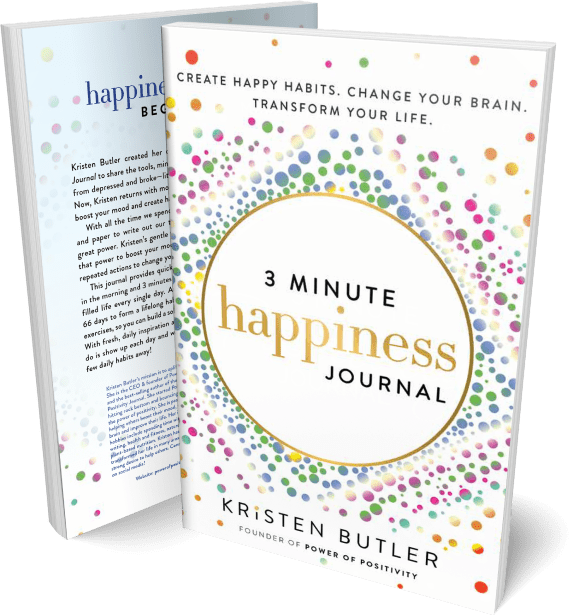Here are the signs he’s a keeper.
Understanding what to look for in a partner is more than just a skill—it’s an art. The key to a happy, long-lasting relationship often lies in recognizing the qualities of a good partner’s qualities, which go beyond just charm and good looks. You will start to wonder if your new man is husband material.
In this exploration, we look into what makes a man not just date-worthy but husband material. This article aims to guide you through the signs that suggest a man is ready for lifelong commitment.
NOTE: We invite you to read about the signs of a woman is good wife material in our companion article.
What Are the Signs of a Man Who’s Husband Material?

1 – He Communicates Effectively
Good communication is not just a skill—it’s the backbone of any successful relationship. When a man is husband material, he understands the importance of talking and listening. He’s the one who can discuss issues calmly and express his thoughts clearly without resorting to hurtful words or silent treatments. Effective communication also means being open about feelings and needs, not hiding behind vague statements. A man who can express joy, concern, love, and even disappointment in a way that fosters understanding and connection rather than creating distance is a man who’s prepared for the intricacies of married life. He understands that being a good communicator also involves being a good listener—someone who pays attention to your words, respects your opinions, and values open honest dialogue.
2 – He Respects Your Independence
Love is about sharing lives, not controlling them, in a healthy relationship. A man whose husband material will celebrate your independence, respecting your personal space, interests, and individuality. He’s the one who understands that time spent apart, pursuing personal hobbies or spending time with friends, is just as important as the time spent together. This balance is crucial—it maintains a sense of self within the relationship. He won’t feel threatened by your achievements or social life; instead, he’ll be your biggest cheerleader. Respect for independence also means trusting you, avoiding unwarranted jealousy or possessiveness, and understanding that a strong relationship is built on mutual trust, not dependency.
3 – He Shares Similar Values and Goals
A long-lasting relationship’s most significant foundations are shared values and goals. It’s not about agreeing on everything but about aligning on core beliefs and life ambitions. A man who is husband material will have goals that resonate with yours, whether it’s views on family, career ambitions, or personal values. Shared values create a deeper connection and ensure you’re both heading in the same direction. This alignment doesn’t mean you won’t face challenges, but you’ll be better equipped to handle them together, working towards common goals and respecting each other’s dreams and aspirations. A man who shares your values will stand by you, support your decisions, and celebrate your successes as if they were his own.
4 – He Shows Empathy and Understanding
Empathy isn’t just a word; it’s a pathway to a deeper connection in any relationship. A man who is a potential husband material shows a profound ability to empathize and understand your feelings. He’s not just a listener; he tries to step into your shoes, understanding your perspective, whether it’s a joyous occasion or a challenging moment. This kind of emotional intelligence is invaluable. He’s aware of his emotions and manages them well, but more importantly, he’s attentive to yours. He can sense when you’re upset or ecstatic and reacts accordingly, offering support, comfort, or celebration. In a partner, emotional intelligence translates to a deeper, more connected relationship where both partners feel heard and valued.
5 – He Supports Your Dreams
In life’s journey, having a partner who supports your dreams and aspirations is like having a constant source of inspiration and strength. A man who’s husband material will be your cheerleader, encouraging you to pursue your goals and celebrate your successes. He’s not competing with you; instead, he sees your achievements as a part of the shared happiness and success of the relationship. This supportive nature is crucial for a healthy relationship. It fosters a nurturing environment where both partners can grow and thrive. He takes an interest in your goals, offers encouragement, and stands beside you in moments of triumph and through challenges and setbacks.
6 – He Handles Conflict Constructively
Relationship conflict is inevitable, but handling it can make all the difference. A man ready for marriage knows how to manage disagreements constructively. He approaches conflicts with a mindset of a resolution, not escalation. This means he avoids toxic behaviors like yelling, name-calling, or stonewalling. Instead, he opts for open communication, actively listens, and strives to understand your point of view. He’s willing to compromise and seeks solutions that benefit the relationship, not just his desires. A partner who can navigate conflicts with maturity and respect ensures a relationship that can withstand the test of time and grow stronger through challenges.
7 – He Demonstrates Reliability
Reliability is a cornerstone of trust in any relationship. A man who is husband material shows consistency in his actions and keeps his promises. He’s someone you can depend on, whether it’s for small daily tasks or significant life events. His reliability goes beyond punctuality or meeting obligations; it’s about being a stable and dependable presence. He follows through on his words, showing that he values and respects you and the relationship. This reliability builds a foundation of trust, creating a secure and supportive relationship environment. Knowing you have a partner to rely on provides comfort and peace, essential ingredients for a lasting and loving marriage.
8 – He Expresses Affection and Appreciation
Expressions of love and gratitude are the lifeline of a healthy relationship. A husband material man knows the importance of regularly showing affection and appreciation. He recognizes and values your contributions. This can be through simple gestures like a thank-you for everyday tasks or more significant expressions on special occasions. His ability to show love in words, actions, and small tokens shows his deep respect and care for you. A man who makes it a habit to remind you of your importance in his life strengthens the bond and creates a nurturing and loving environment essential for a lasting relationship.
9 – He Has a Sense of Humor
Laughter truly is one of the best medicines, especially in relationships. A man with a good sense of humor brings light-heartedness and joy to a relationship. His ability to laugh, including at himself, can ease tense situations and bring a unique warmth to everyday interactions. This doesn’t mean he doesn’t take serious matters to heart, but he knows when a bit of humor can make living easier and more enjoyable. Sharing laughs builds a stronger bond and creates lasting memories. Remember, a man who can make you laugh during tough times is someone who can help you find the silver lining even on cloudy days.
10 – He Maintains Healthy Relationships with Others
How a man interacts with others, especially friends and family, offers significant insights into his character. Husband material is a man who maintains healthy, respectful relationships with those around him. He demonstrates kindness, respect, and care in his interactions, showing that he values and nurtures his relationships. This behavior strongly indicates how he will treat you in the relationship. A man who is caring and respectful towards others is likely to bring those same qualities into his marriage, creating a harmonious and loving home environment.
11 – He is Financially Responsible
Financial responsibility is a critical aspect of a long-term partnership. A man ready for marriage displays an understanding of financial management and planning. He knows the importance of budgeting, saving, and preparing for the future. This doesn’t necessarily mean he must be wealthy, but rather that he is wise in managing whatever financial resources he has. He is open to discussing and aligning on financial goals and habits, understanding that financial harmony is crucial in a marriage. A partner who is financially responsible ensures a stable and secure future, minimizing one of the common stressors in relationships.
12 – He Shows Patience and Tolerance
Patience and tolerance are virtues of immense value in a relationship. A man who exhibits these qualities is likely to be a great husband. He understands that everyone, including himself, is imperfect and accepts these imperfections gracefully. He shows patience during challenging times and tolerates differences in opinions, habits, and perspectives. This level of understanding and acceptance is vital for a healthy, thriving relationship. It means that he is willing to work through issues, understand your viewpoint, and embrace the unique aspects of your personality, all of which contribute to a harmonious and loving partnership.
13 – He Expresses Affection and Appreciation
Affection and appreciation are occasional grand gestures and daily actions and words that keep the spark alive in a relationship. A man who is truly husband material knows the importance of regularly expressing his love and gratitude. He recognizes your efforts and contributions, whether you’ve had a challenging day at work or you’ve gone out of your way to do something special. This appreciation isn’t always about grand declarations; often, it’s found in the small, everyday acknowledgments that make you feel valued and loved. His ability to express his feelings openly and show appreciation strengthens the emotional bond and builds a foundation of mutual respect and love in the relationship.
14 – He Has a Sense of Humor
A sense of humor is vital to a happy, resilient relationship. A man with a good sense of humor can bring lightness and joy into your life. He understands the importance of laughter and doesn’t take himself too seriously. This trait is essential for navigating the ups and downs of life together. A shared laugh can turn a challenging situation into a manageable one, and it helps create a strong and joyful bond. Remember, a partner who can make you smile and laugh is someone who can make your life brighter, even on the most difficult days.
15 – He Maintains Healthy Relationships with Others
How a man interacts with his friends and family often reflects how he will treat you in a relationship. A man who is a husband has material values and maintains healthy relationships with those around him. He exhibits respect, care, and kindness in his interactions, showing a depth of character crucial for a lifelong partnership. Observing his behavior with others gives you insight into his values, how he handles various relationships, and how he might engage in your shared life. A partner who is respectful and caring towards others is more likely to bring those same qualities to his relationship with you, contributing to a loving and harmonious life together.

Final Thoughts on Recognizing a Man Who Will Be a Good Husband
A lasting relationship is built on more than initial attraction or shared interests. It’s about deep, foundational traits that foster mutual respect, love, and understanding. A man who communicates effectively respects your independence and shares your values sets the stage for a strong partnership. His empathy, support for your dreams, and constructive conflict approach reinforce a stable and loving bond.
In your search for a life partner, remember that these qualities indicate a man who loves you and is prepared to stand by your side through life’s journey. It’s about finding someone who complements you, who brings out the best in you, and with whom you can build a shared life of happiness and fulfillment. Finding a husband is as much about knowing yourself and what you need in a partner as it is about recognizing these qualities in someone else. May your journey be filled with wisdom, understanding, and love, leading you to a partner who is not just husband material but a true companion for life.



















